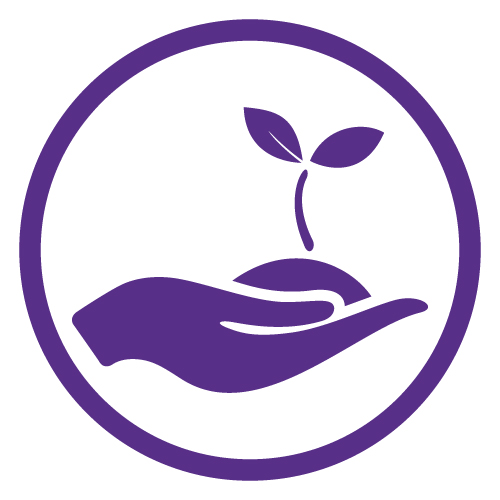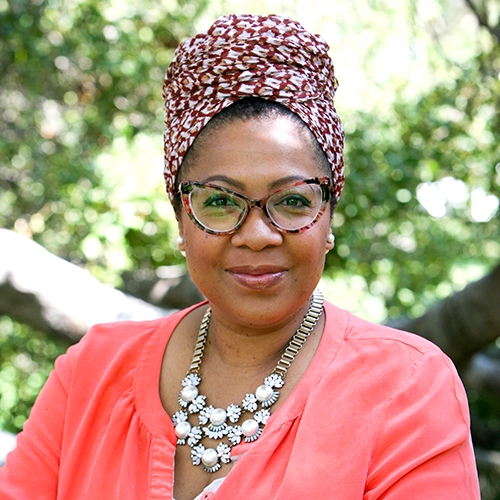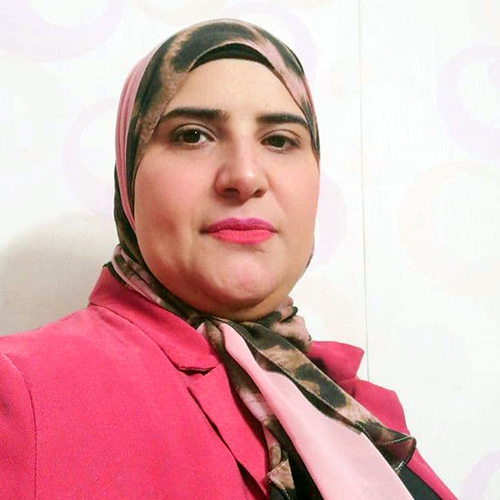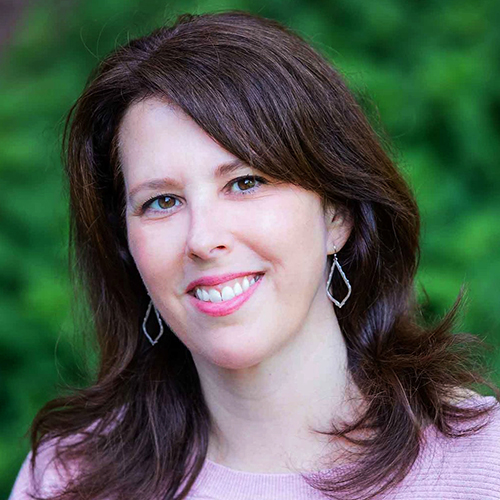 IBCLC Detailed Content Outline: Clinical Skills Focused CERPs - Section VII
IBCLC Detailed Content Outline: Clinical Skills Focused CERPs - Section VII
Access CERPs on Clinical Skills for the IBCLC Detailed Content Outline recertification requirements. Enjoy convenient on-demand viewing of the latest Clinical Skills focused IBCLC CERPs at your own pace.
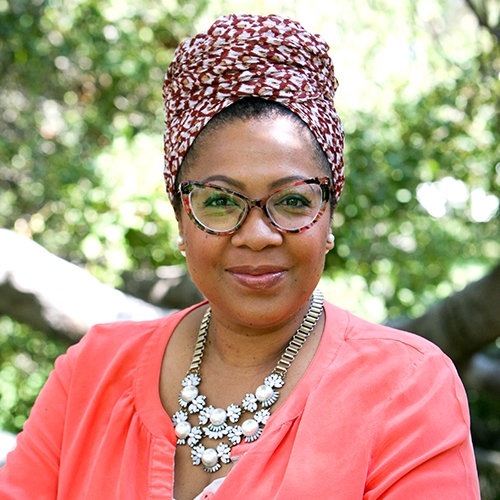

Nekisha Killings is an equity strategist, internationally board-certified lactation consultant, and maternal and child health advocate who speaks, teaches, and facilitates on topics related to equity and dismantling bias across various sectors.
When she is not home educating 4 future world changers, she acts as a Director of Equity, Inclusion and Belonging at Lactation Education Resources and consults organizations on creating and implementing strategies to better support marginalized communities.
Nekisha holds a Masters in Public Health and penned the chapter titled Cultural Humility in the latest Core Curriculum for Interdisciplinary Lactation Support text. Nekisha is on a mission to normalize brown breasts and nipples in health education, thereby better equipping healthcare providers to accurately assess and treat people of color.
Nekisha's work is rooted in a compassion and candor that could only have been cultivated in years of supporting new parents during their first days of parenthood. Nekisha is an active duty military spouse who has been awarded the Spouse of the Year designation for her volunteer efforts supporting families.
Topic: Breast Assessment and Non-White Skin Tones - [View Abstract]
Topic: BreastSide Manner: A Patient-Centered Approach to Lactation Support - [View Abstract]
Topic: Marching Orders: Developing Practical and Impactful Care Plans - [View Abstract]
What good is a successful patient consult if the follow-up instructions are not thorough or are too complicated to follow? In this talk, we’ll review best practices in Care Plans, and explore innovative approaches to developing plans. The goal is to increase patient compliance and the right Care Plan can be a powerful tool towards full compliance. We will discuss pitfalls of traditional plans, dos and don'ts in writing plans, and crafting plans that are culturally sensitive and realistic. We’ll also explore using to technology to create adaptable and adjustable plans.
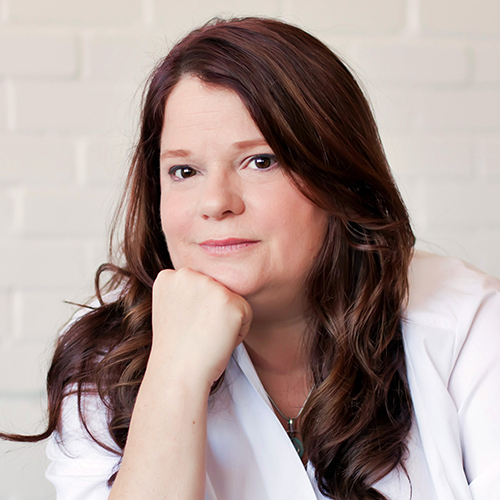
Milk Sharing and Milk Banking: Building Knowledge for Better Outcomes

Barbara D. Robertson, IBCLC, has been involved in education for over 34 years. She received a Bachelor’s degree in Elementary Education in 1988 and her Master’s in Education in 1995. Barbara left teaching elementary students in 1995 to raise her two children. Barbara is now the Director of The Breastfeeding Center of Ann Arbor and of the brand new business LactaLearning.
The Breastfeeding Center of Ann Arbor will still continue to serve breast/chestfeeding families and now LactaLearning will be dedicated to all of Barbara’s professional lactation trainings. Barbara has developed two 95 hour professional lactation training, a group training and a completely self study training with Nancy Mohrbacher. Barbara’s idea of creating professional book groups has exploded with her hosting Making More Milk with Lisa Marasco, Supporting Sucking Skills with Cathy Watson Genna, Breastfeeding Answers, 2nd Edition with Nancy Mohrbacher, and new for the fall, Safe Infant Sleep with Dr. James McKenna. Barbara will be hosting a one day online conference in the fall with Lisa Marasco and Cathy Watson Genna using all of her tech savvy skills to make this a one of a kind experience. Barbara is also a speaker for hire on a wide variety of topics including Motivational Interviewing. Barbara volunteered for the United States Lactation Consultation Association as the Director of Professional Development for 4.5 years.
She just retired as Associate Editor for Clinical Lactation, a journal she helped create for USLCA. Barbara has free podcasts, a blog, and Youtube videos which can all be found on her websites lactalearning.com and bfcaa.com. She has written many articles as well. She loves working with parents and babies, helping them with breast/chestfeeding problems in whatever way she can.
Topic: Breastfeeding: Baby’s First Milestone - [View Abstract]
Topic: Clinical Assessment and Management of Low Milk Production - [View Abstract]
Topic: Deconstructing Online Messaging: Ethical Considerations - [View Abstract]
Topic: Milk Sharing and Milk Banking: Building Knowledge for Better Outcomes - [View Abstract]
Topic: The Baby's Not Gaining Weight! Now What? - [View Abstract]
Topic: The Great Nipple Shield Debate - [View Abstract]
Humans have been sharing their breastmilk for the benefit of other babies for thousands of years. In this presentation, we will be looking at how a baby might have access to human milk if their parent cannot provide it themselves. The history and current practices of milk banking, both for profit and non-profit, will be covered as well as milk sharing.
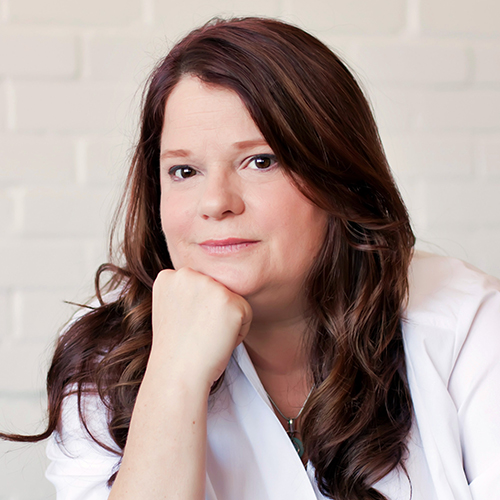
View Details / Enroll

Mindful Breastfeeding: How Lactation Professionals Can Support Calm and Connection

Joy MacTavish, MA, IBCLC, RLC is an International Board Certified Lactation Consultant and certified Holistic Sleep Coach focusing on the intersections of infant feeding, sleep, and family well-being. Through her business, Sound Beginnings, she provides compassionate and evidence-based support to families in the greater Seattle area, and virtually everywhere else. She entered the perinatal field in 2007 as birth and postpartum doula, and childbirth and parenting educator. Joy holds a Master of Arts in Cultural Studies, graduate certificate in Gender, Women and Sexuality Studies, and two Bachelors degrees from the University of Washington. She enjoys combining her academic background, analytical skills, and passion for social justice into her personal and professional endeavors. Joy serves as an Advisory Committee Member and guest speaker for the GOLD Lactation Academy. When not working or learning, she can be found homeschooling, building LEGO with her children, or dreaming up her next big adventure.
Topic: Full-Term Breastfeeding/Chestfeeding: Benefits, Considerations, and Ways to Offer Support - [View Abstract]
Topic: Mindful Breastfeeding: How Lactation Professionals Can Support Calm and Connection - [View Abstract]
Topic: Sending Reports: What’s in it for IBCLCs? - [View Abstract]
Topic: Supporting Clients Facing Fertility Treatment - [View Abstract]
Topic: The Intersection Between Lactation, Sleep, and Family Well-Being - [View Abstract]
Topic: Weaning: Supporting Families Stopping Lactation and/or Ending Their Breastfeeding/Chestfeeding Relationship - [View Abstract]
The age-old practice of mindfulness meditation has increased in popularity across the globe over the past four decades and gained traction within the psychological and medical fields. Mindfulness centers on non-judgmental awareness of one’s bodily sensations, thoughts, and emotions in the present moment. It has been scientifically shown to reduce stress, chronic pain, medical and psychological symptoms, and enhance immune function. Mindfulness practices often focus on psychobiological processes, which makes them well suited as in intervention during the perinatal period, and even more specifically breastfeeding. This presentation outlines the ways in which mindfulness can positively impact lactation, during its normal course and especially when there are challenges. As lactation professionals who clinically and holistically support clients, it is beneficial to be able to share mindfulness strategies that can serve as a bridge between the mental, emotional, and physiological realms. Through a greater understanding of the practical aspects of mindfulness, gentle interventions can be incorporated into each feeding session. By supporting calm and connection within the parent and between the parent and infant, the experience of breastfeeding can be enhanced.

View Details / Enroll

View Details / Enroll

More Support in a Coffee Shop Than in the Hospital: Experiences of Breastfeeding Children With Medical Complexity

Lyndsey is an experienced paediatric nurse, children’s public health nurse, International Board Certified Lactation Consultant, Holistic Sleep Coach, researcher and responsive parenting advocate. She has worked in hospitals, clinics, the community and within clients’ homes for 20 years, serving within the UK NHS, in private practice and voluntarily.
The co-founder and clinical director of the Holistic Sleep Coaching program, Lyndsey regularly teaches internationally, as well as providing mentorship for newer sleep coaches. She is passionate about responsive feeding, gentle parenting and promoting parental confidence and well-being.
With Professor Amy Brown, she is the co-founder of Thought Rebellion – an education and publishing company seeking to inspire, challenge and equip professionals and writers in the parenting, lactation and perinatal space with an evidence based revolution.
Lyndsey is currently a PhD researcher at Swansea University, exploring the needs and challenges of medically complex breastfed infants and children. In 2019 she set up the Breastfeeding the Brave project to raise awareness of the unique breastfeeding needs of chronically, critically, and terminally ill children in the paediatric setting. The mother of a childhood cancer survivor, she often talks about the impact of chronic serious illness on families, and seeks to support other families living through a serious childhood illness.
Lyndsey is a respected international speaker and teacher, and regularly speaks out against the dominant sleep training culture, as well as advocating for the rights of families to receive high-quality, compassionate and expert support. She is the author of Holistic Sleep Coaching (2018), Let’s talk about your new family’s sleep (2020), Still Awake (2021), Breastfeeding the Brave (2022) and co-author of The Writing Book (2022).
Topic: Breastfeeding Children with Cancer - [View Abstract]
Topic: More Support in a Coffee Shop Than in the Hospital: Experiences of Breastfeeding Children With Medical Complexity - [View Abstract]
Topic: Supporting Families With Sleep While Optimising Attachment and Responsive Feeding - [View Abstract]
Topic: You Can't Sleep With Your Foot On The Gas Pedal: How To Improve Sleep By Tapping Into Calm - [View Abstract]
Breastfeeding may be natural, but it isn’t easy. Initiating and maintaining breastfeeding, and overcoming barriers can be hard for anyone, but breastfeeding a child with illness or medical complexity in the paediatric setting is uniquely challenging and presents different obstacles than those commonly experienced by parents feeding healthy term newborns or preterm neonates.
Current policies, BFHI standards, and training are weighted towards the initiation of breastfeeding or the establishment of effective pumping for a preterm infant. The needs and challenges of children beyond the neonatal period are largely unresearched. My systematic review in 2021 found seven key themes that provided some explanation as to why breastfeeding a child with medical complexity in paediatrics is different and more challenging to achieve.
My qualitative study in 2022 has provided novel insight and new data into the specific challenges encountered by parents of children with acute, chronic, complex and life-threatening illness in the paediatric ward or paediatric intensive care unit and provides tentative explanations and suggestions for how to approach this unique population to optimise their feeding experience.
In this presentation, learners will understand how to view the paediatric population as distinct from the maternity and neonatal population and appreciate some of the unique difficulties that these families face. Learners will also develop understanding of the need to merge clinical and lactation skills in a collaborative approach to care. Finally, new insights and awareness of the importance of expanding current training to meet the needs of this population will be shared.
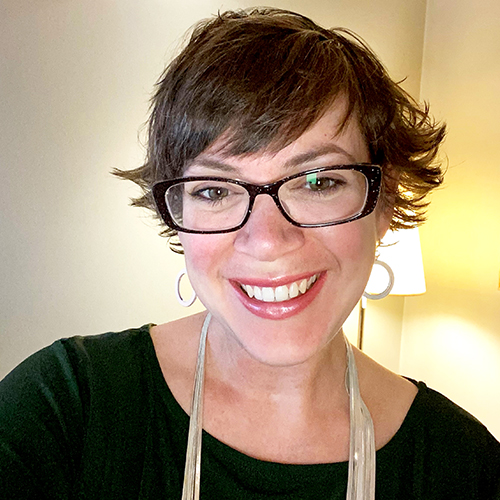
View Details / Enroll
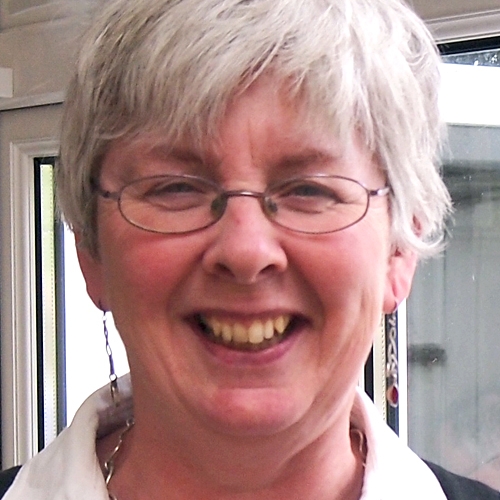
Mothering Experiences: The Development of Self-Efficacy in First Time Mothers

Eithne Murray developed a passion for breastfeeding as a result of her own experience as a mother – a passion she did not know she had. She initially trained as a breastfeeding counsellor with NCT in the UK and, upon moving back to Ireland, trained as a breastfeeding counsellor with Cuidiú-the Irish Childbirth Trust, later becoming a tutor. She qualified as an IBCLC in 2009, and worked privately for a while. She now works predominantly in education. This presentation was based on the research undertaken for a dissertation on transition to motherhood as part of her studies for a Masters degree.
Aims: The aims of this study were to explore the role of education and support in the development of self-efficacy in first-time mothers during the transition to motherhood.
Methodology: Using a qualitative approach, first time mothers, whose babies were less than 15 months old, were recruited from among women who had attended various models of antenatal classes They took part in a semi-structured interview on their experiences and personal constructs relating to the perceived quality of support they received were then elicited.
Findings: Becoming a mother was a process that held great meaning for all the mothers. For the women interviewed, breastfeeding was both a practice and a process which held meaning for these women. The impact of the various forms of antenatal classes in developing self-efficacy for all parental tasks is explored. The elicitation of personal constructs provides a novel format for women to evaluate the quality of the support they received – a topic which has been seldom researched.

View Details / Enroll
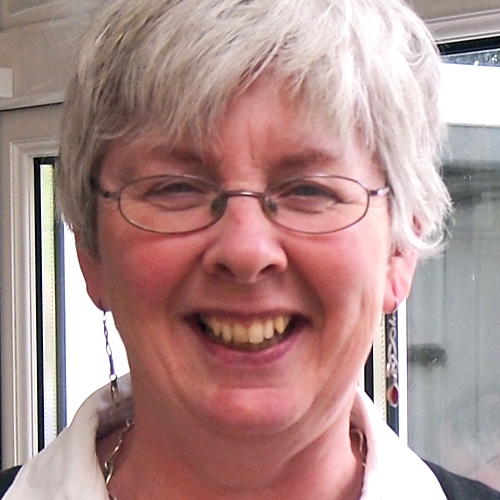
View Details / Enroll
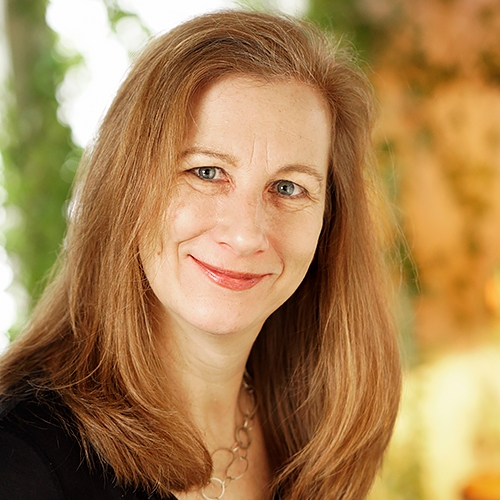
Moving from Evidence to Practice: Knowledge Translation and Breastfeeding Support

Sonia Semenic is an Associate Professor at the Ingram School of Nursing, McGill University (Montreal, Quebec, Canada) and a Nurse Scientist at the McGill University Health Center. After many years of experience as an IBCLC and Clinical Nurse Specialist in maternal-child health, Sonia completed a PhD in Nursing and postdoctoral training in community health. Her research aims to better understand the process of knowledge translation (KT) in perinatal health, with a particular focus on the implementation of evidence-based practices to protect, promote and support breastfeeding. She currently co-leads the Knowledge Translation Platform for the Quebec Nursing Intervention Research Network, and teaches graduate courses on knowledge translation in nursing practice.
Topic: Moving from Evidence to Practice: Knowledge Translation and Breastfeeding Support - [View Abstract]
Despite irrefutable research evidence for the benefits of breastfeeding, less than 37% of infants worldwide meet WHO targets for optimal breastfeeding. Persistently low breastfeeding rates are due in part due to poor uptake of breastfeeding best-practice guidelines, such as the Baby-Friendly Hospital Initiative. The growing field of knowledge translation in healthcare reveals that it takes from 8-30 years for research findings to be adopted into clinical practice, and that up to 45% of patients don’t receive evidence-based healthcare. This presentation aims to help those providing lactation support to better understand the complexity of factors influencing the use of evidence in practice, as well as what can be done to facilitate the uptake of best practice guidelines to protect, promote and support breastfeeding. Whether or not care providers follow evidence-based practices is influenced by the nature of the evidence (e.g., perceived relevance of the evidence), characteristics of the care providers (e.g., motivations to change practice) as well as characteristics of the care environment (e.g., leadership support for change). Successful strategies for supporting practice change are tailored to local barriers and facilitators to evidence use, and can be informed by the growing number of theoretical models and frameworks for KT in healthcare.

View Details / Enroll

View Details / Enroll
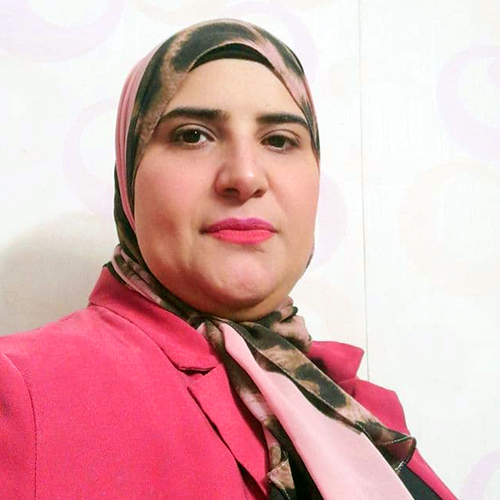

Dr.Fayrouz Essawy Pediatrician, Neonatologist, IBCLC • Neonatology Consultant • Bachelor of Medicine and surgery - Cairo University 2004 • Master degree of pediaterics - Ain shams University 2012 • Egyptian neonatology fellowship 2015 • IBCLC 2015 • LCCC course instructor & developer 2016 • Breastfeeding medicine specialist. • Baby friendly coordinator. • Harvard Graduate of Training of trainee program 2020. • Member of the Egyptian Society of Pediatrics • Member of the Egyptian lactation consultant association (ELCA) • Member of the academy of breastfeeding medicine (ABM) • Member of the international lactation consultant Association (ILCA)
The feeding of breast milk during the NICU admission reduces the risk of short-and long-term morbidities especially in premature infants. Breastmilk provides immunological, anti-infective, anti-inflammatory, epigenetic, and mucosal membrane protecting properties. The mechanisms by which human milk provides its protection are varied. These mechanisms include immunological and specific unique human milk components that are not present in formula. Thus, the feeding of mother’s own breastmilk should be a NICU priority and every NICU should have a breastmilk storage and handling policy. In this presentation we will discuss how we can counsel parents about the infection control measures and guidelines related to storage, handling and administration of breastmilk to babies in the NICU. Learn more about hospital grade pumps, pumping at home vs pumping in hospital setting, prevention and management of potential mistakes such as giving a child another mother’s milk and how to handle and store fortified breastmilk.

View Details / Enroll
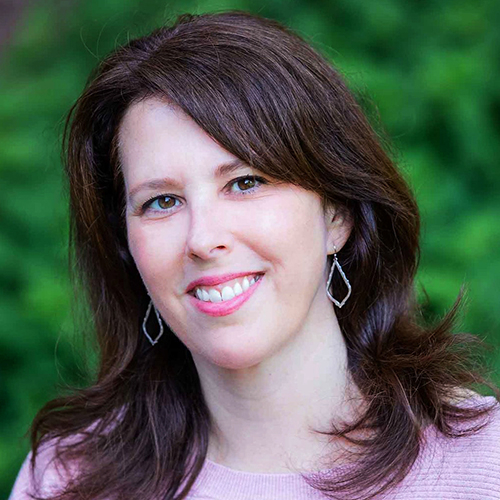
Nurturing the Future of Lactation Care: It’s up to All of Us!

Allison Walsh IBCLC LCCE FACCE is an International Board Certified Lactation Consultant (2006), Lamaze Certified Childbirth Educator (2000), and and doula (2000) in private practice in New York City. She is one of the three founders of the Lactation Learning Collective, which offers education and support to those on the pathway toward certification as International Board Certified Lactation Consultants along with families in need of lactation support. She trains childbirth educators as a Co-Director of the NYC Lamaze Childbirth Educator Program and is a past president of Lamaze. Allison has represented Lamaze International as a delegate to the United States Breastfeeding Committee since 2004, and has served in various leadership and committee roles. Allison is a member of the New York City Breastfeeding Leadership Council, the New York Lactation Consultant Association, and an active La Leche League Leader. She co-chaired the Save the Birthing Center Committee which was a group of professionals, advocates and consumers who fought valiantly but unsuccessfully to stop the closure of the Mount Sinai West (formerly Roosevelt) Birthing Center in New York City. Prior to the birth of her first child, Allison was a political consultant and community organizer. Skills from that “past life” are useful in all aspects of her work in the birth world. She is a graduate of Syracuse University and mother of three formerly breastfed children. Allison thinks that babies are the most interesting of all people and never underestimates the power of a good cup of tea, fresh air, and fresh bed linen.
The possibility of serving as a mentor can feel perfectly comfortable to some people, while overwhelming and frightening to others. This presentation will discuss the steps to becoming a mentor and fostering a productive mentoring relationship to grow the lactation care profession. Join one of the founders of NYC's Lactation Learning Collective for an in-depth look at the why’s and how’s of mentoring the next generation. Learn about IBLCE’s requirements and how to smooth the process and make it fulfilling for both mentees and mentors.

Out of the Blue: Post-Partum Mood Disorders and Breastfeeding

Dianne is an IBCLC, podcaster, author, lactation education manager and has been working with families since 2008. She has worked with thousands of families in all areas of their breast/chest feeding journey. Dianne teaches using her real-life experiences and case studies, which sets her apart in the lactation field providing a personalized and realistic experience for her audiences. Dianne’s evolution began as a clinical, patient-centered lactation consultant to a public speaker and educator, where she really shines. Her energy is contagious, and is felt by families, lactation consultants and birth workers alike.
Topic: Out of the Blue: Post-Partum Mood Disorders and Breastfeeding - [View Abstract]
Topic: Paying it Forward, Support for the Breastfeeding Mother and Baby - [View Abstract]
Topic: Traumic Life Experiences and how they Affect the Breastfeeding Mother - [View Abstract]
Topic: Unlocking the Power of Proper Latching: Overcoming Challenges and Maximizing Breastfeeding Success - [View Abstract]
It is well known that breastfeeding is beneficial to both mother and baby. What happens if breastfeeding is not well established? Researchers are looking closer to postpartum mood disorders and what influence breastfeeding may have in a new mother's psychological well being.
Postpartum depression has been linked to low breastfeeding rates, as well as lower duration rates. Postpartum depression falls under the diagnosis of "major depressive disorder with peripartum onset during pregnancy or in the weeks following delivery" (Bascom & Napolitano, 2015). It has been estimated that postpartum mood disorders, strike an estimated 10-20% of new mothers (Bascom & Napolitano, 2015). However, it has been argued that this number reflects only those women who have sought help for their symptoms. The probability that more women are affected by postpartum mood disorders is high.
Postpartum mood disorders adversely affect not only the health of the mother, but also the relationship with her partner, interaction with her newborn and infant growth (Yusuff, Tang, Binns, Lee, 2015). There are several predictors that can help determine if a woman is at risk for postpartum mood disorders, including mental health history, social status, and labor and delivery. Researchers have found that when more medical interventions were used during labor, the higher the depressive symptoms for the mother. This presentation will aid personnel working with new families to be aware of the signs and syptoms of postpartum mood disorders and how to preserve the breastfeeding relationship.

View Details / Enroll
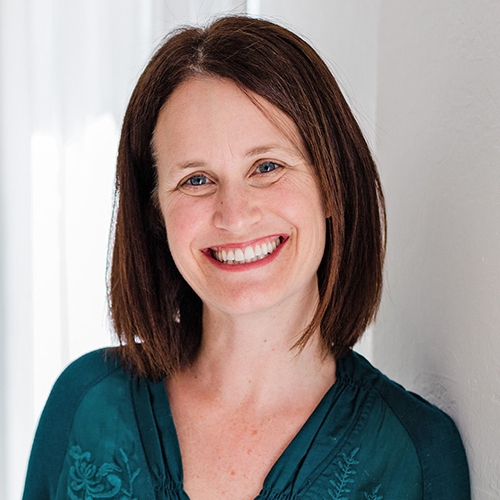
Overcoming Challenges When Providing Virtual Support to Breast/Chestfeeding Families

Robin Kaplan has been an IBCLC since 2009, the same year that she opened up the San Diego Breastfeeding Center. She founded the San Diego Breastfeeding Center Foundation in 2016, a 501(c)3 organization whose mission is to reduce breastfeeding disparities among families of color and low-income families, as well as provide scholarships for women of color to become IBCLCs.
Robin was the founding host of the Boob Group podcast and published her first book, Latch: a Handbook for Breastfeeding with Confidence at Every Stage in 2018. Robin’s center has been a clinical training site for the UCSD Lactation Consultant program since 2015.
In 2019/2020, Robin helped write the curriculum for the University of California San Diego Lactation Educator Counselor program and was the Program Manager for the UCSD Curriculum Development Team for the Pathway 1&2 Lactation Consultant program. Robin has a BA from Washington University in St Louis and Masters in Education from University of California Los Angeles. Robin is currently attending the Functional Nutrition Alliance to become a Functional Nutrition Counselor.
The need to provide virtual support for breast/chestfeeding families may have been ignited by the pandemic, but telehealth is here to stay. The convenience and flexibility of meeting with families virtually removes barriers, such as location, childcare, and transportation. It also comes with its own set of challenges, such as difficulties reading body language, making connections with our clients, and assessing oral anatomy/milk transfer. Yet, with some intentional preparation, crafty detective skills, open-ended questions, and protocols for complicated situations, you may find that virtual consultations can truly meet the needs of your clients/patients.
This presentation will help attendees think through those important preparations to optimize virtual support.

View Details / Enroll
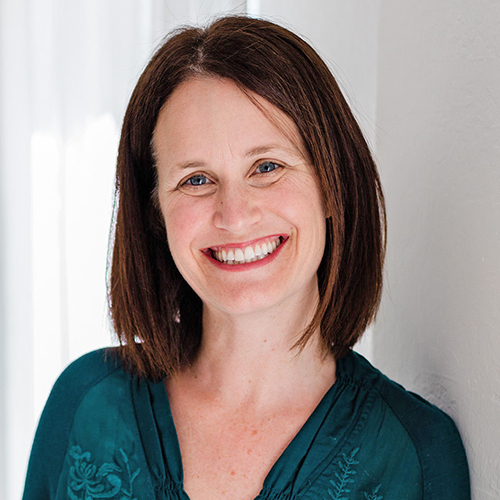
View Details / Enroll



